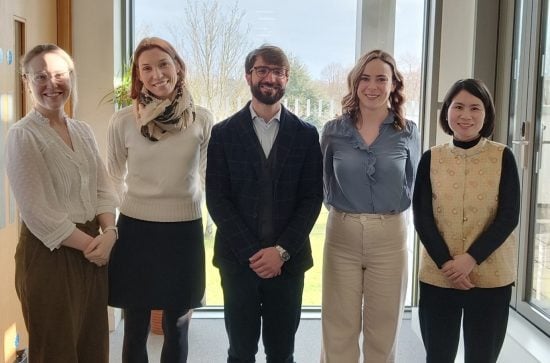
On the 12th February, the School of Law and Criminology hosted the first in this semesters Research Seminar Series. Dr Edoardo Celeste (DCU) talked about Artificial Intelligence and EU Digital Sovereignty Strategies with Prof. Delia Ferri chairing the session.
“In the digital sector, the EU is heavily dependent on third countries. Recent EU policy strategies no longer merely aim to boost digitalisation, but are guided by a new, at times vague, principle: digital sovereignty. The Union is seeking to achieve a status of strategic autonomy across a plurality of areas, including in the field of AI, which is also considered to be key to fostering the green transition. This paper analyses to what extent EU digital sovereignty ambitions are driving the development of a regional AI strategy. In particular, it assesses whether the goal of achieving a form of digital independence in the AI sector may lead to protectionist effects that are at odds with the EU's traditional position in international relations.”
Edoardo Celeste is an Associate Professor of Law, Technology and Innovation at the School of Law and Government of Dublin City University. Edoardo is the Programme Chair of the Erasmus Mundus Master in Law, Data and Artificial Intelligence (EMILDAI), the Deputy Director of the Dublin European Law Institute and the coordinator of the DCU Law and Tech Research Cluster. Edoardo is the author of the monographs 'Digital Constitutionalism: The Role of Internet Bills of Rights' (Routledge 2022) and 'The Content Governance Dilemma' (Palgrave 2023). His recent works focused on the concept of digital sovereignty and his fortcoming edited volume is titled ‘Digital Sovereignty and the Green Transition: EU Challenges in Times of War and Energy Crisis’ (Hart 2025).
Our Research Seminar series is coordinated by Dr Hubert Smekal, Associate Professor.
For more information on our research seminar series see here.
